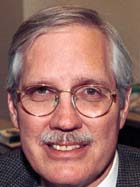Voices of Collective Remembering
(Cambridge University Press, 2002)
There is currently a great deal of discussion in the humanities and social sciences about collective memory, but there is very little agreement on what it is.

The first goal of this volume is to review various understandings of this term to bring some coherence to the discussion. Drawing on this review, James V. Wertsch goes on to outline a particular version of collective remembering grounded in the use of ‘textual resources,’ especially narratives.
This takes him into the special properties of narrative that shape this process and into the issues of how these textual resources are produced and consumed. Wertsch brings these general ideas to life by examining the rapid, massive transformation of collective memory during the transition from Soviet to post-Soviet Russia. — Taken from the book jacket
“I decided to take on this book project in conjunction with our efforts at the University to write a proposal for the Henry R. Luce Foundation Professor of Collective and Individual Memory,” Wertsch said. “As we went through the search to fill the position, it became clear to me how wide open, exciting and undefined the notion of collective memory is. Once Pascal R. Boyer arrived as the Henry Luce Professor of Collective and Individual Memory, I found this discussion led me in other unanticipated directions, which only whetted my appetite further.”
“Among other things, I found that the topic of collective memory lent itself well to the kind of interdisciplinary work that the University is so good at encouraging. It allowed me to build an intellectual link between my old home in the Department of Education in Arts & Sciences while taking on new activities in the International and Area Studies Program — and still work with colleagues in psychology and other departments as well.
“Voices of Collective Remembering differs from other treatments of the topic because it draws on the massive literature in the psychology of memory and at the same time addresses issues in sociology, history, politics, and anthropology such as the state control of collective memory.
“It also provides a systematic look at such state control in one of the most interesting natural laboratories in the world — that provided by the transition from Soviet to post-Soviet Russia.”